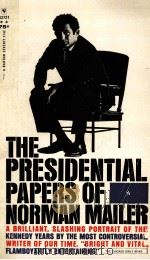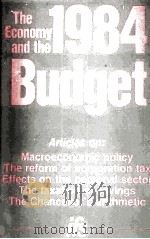《PRESIDENTIAL POPULARITY AND THE ECONOMY》
| 作者 | 编者 |
|---|---|
| 出版 | 未查询到或未知 |
| 参考页数 | 289 |
| 出版时间 | 没有确切时间的资料 目录预览 |
| ISBN号 | 0030635667 — 求助条款 |
| PDF编号 | 811868278(仅供预览,未存储实际文件) |
| 求助格式 | 扫描PDF(若分多册发行,每次仅能受理1册) |
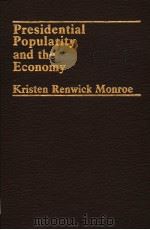
PROLOGUE1
1.POLITICAL SUPPORT FOR INCUMBENTS19
the Economy and Voting: The Early Works20
From Rainfall and the Populists to Business Curves and Congressional Voting20
From FDR and Farm Wages to Presidential Voting and Price Levels22
The 1950s and 1960s: Economists versus Sociologists23
Rrecent Econometric Analyses of Electoral Behavior27
Kramer's Rational Choice Formulation and Stigler's Response27
The Debate Intensifies: Arcelus and Meltzer versus Bloom and Price and Goodman and Kramer31
Congressional Voting33
The Economy and Incumbent Popularity: The Public Opinion Polls39
Support for American Presidents from FDR to Ford39
Public Support for Incumbents Outside the United States43
Group-Level Analyses50
The Economy and Microlevel Political Responses58
Fiorina's Retrospective Voting Model58
Microlevel Survey Data: The Linkage Between Collective Electoral Behavior and the Individual Voter61
The Sociotropic Voter Challenges thePocketbook Voter as the Concept of the Public Interest Reappears65
Conclusion72
Notes73
2THE ENIGMA OF PRESIDENTIAL POPULARITY77
Major Controversies77
Levels of Analysis Problems77
The Role of Political Parties79
Perceptions of Policy Preferences80
Policy Preferences and Individual Interest: The Sociotropic and the Pocketbook Voter82
Interests: Individual, Group, or Collective83
Acquisition of Information83
Governmental Responsibility, Expectations,Perceptions, and Objective Economic Reality84
Conclusion86
A Framework for Analysis87
Economic Well-Being and the Responsibility for Domestic Economic Conditions88
Economic Perceptions and Expectations90
Partisan Ties and Economic Priorities92
After Popularity: The Vote and Macroeconomic Policies94
Conclusion95
Notes95
3FLUCTUATIONS IN PRESIDENTIAL POPULARITY, 1965-1980105
Recent Trends in Presidential Popularity106
Recent Cycles in Presidential Popularity: Individual Presidencies, 1965-1980110
Johnson: Vietnam and the Vocally Disaffected111
Nixon: Watergate Turned Nostalgia to Relief119
Ford: The Pardon Ended the Honeymoon127
Carter: The Rally Effect Turned Sour134
The Highs and Lows of Popularity: Do They Reflect Random Cycles or Presidential Actions?134
Conclusion145
Notes146
4 UNDERSTANDING CHANGES IN PRESIDENTIAL POPULARITY149
A Paradigm for Understanding Changes inPresidential Popularity149
Economic Variables: Macroeconomic and Redistributive Economic Policies149
Cyclical and Political Events153
Variables, Model Construction, and Data157
Variables and Data157
Model and Hypotheses159
Predictors of Presidential Popularity, 1965-1980162
The Importance of Party Affiliation163
The Peculiar Political Importance of Unemployment171
Economic Expectations and Unemployment Policies174
Are Economic Factors More Important Than Political Events?177
Cyclical Fluctuations and Political Influences179
Little Impact of Social Class180
General Conclusions181
Notes183
EPILOGUE: TOWARD AN INTEGRATED RATIONAL THEORY OF INCUMBENT SUPPORT187
Political Behavior: The Product of an Economic Calculus?The Result of Economic Causes?189
Economists versus Sociologists: Different Approaches to Understanding Behavior191
Repercussions of the Debate Within Political Science192
Politicoeconomic Models: The Need for An Integrated Rational Approach194
Politicoeconomic Models196
Expectations Models199
Expectations Models--Relation to the Classical Economic Model199
An Economic Ratiocination Model201
Notes204
BIBLIOGRAPHY209
APPENDIXES231
Appendix A. Empirical Data231
Appendix B. Yearly Economic Conditions, 1965-1980254
Appendix C. Political Events Affecting Presidential Popularity261
Appendix D. Tables Presenting Beta Coefficients for All Unemployment Groups, Analyzed278
ABOUT THE AUTHOR290
《PRESIDENTIAL POPULARITY AND THE ECONOMY》由于是年代较久的资料都绝版了,几乎不可能购买到实物。如果大家为了学习确实需要,可向博主求助其电子版PDF文件。对合法合规的求助,我会当即受理并将下载地址发送给你。
高度相关资料
-
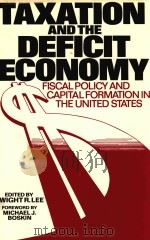
- TAXATION AND THE DEFICIT ECONOMY
- 1986 PACIFIC RESEARCH INSTITUTE FOR PUBLIC POLICY
-
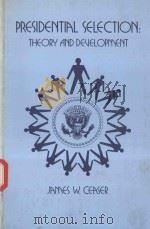
- PRESIDENTIAL SELECTION THEORY AND DEVELOPMENT
- 1979 PRINCETON UNIVERSITY PRESS
-
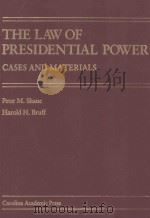
- THE LAW OF PRESIDENTIAL POWER CASES AND MATERIALS
- 1988 CAROLNA ACADEMIC PRESS
-
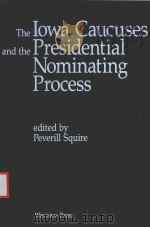
- THE LOWA CAUCUSES AND THE PRESIDENTIAL NOMINATING PROCESS
- 1989 WESTVIEW PRESS
-
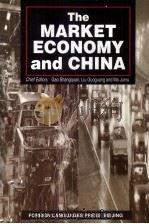
- The Market Economy and China
- 1999 Foreign Languages Press
-

- SOVIET ECONOMY AND THE WAR
- 1943 INTERNATIONAL PUBLISHERS
-
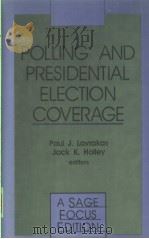
- POLLING AND PRESIDENTIAL ELECTION COVERAGE
- 1991 SAGE PUBLICATIONS
-
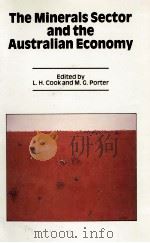
- THE MINERALS SECTOR AND THE AUSTRALIAN ECONOMY
- 1984 GEORGE ALLEN & UNWIN AUSTRALIAN PTY LTD
提示:百度云已更名为百度网盘(百度盘),天翼云盘、微盘下载地址……暂未提供。➥ PDF文字可复制化或转WORD


